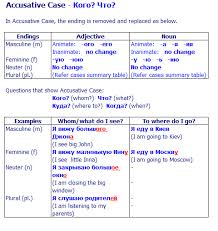accusative

adj. 宾格的
n. 宾格
adj.& n.
宾格(的),宾语(的);
英英释义
accusative[ ə'kju:zətiv ]
n.the category of nouns serving as the direct object of a verb
同义词:accusative caseobjective case
adj.
containing or expressing accusation
同义词:accusatoryaccusingaccusive
serving as or indicating the object of a verb or of certain prepositions and used for certain other purposes
"accusative endings"
同义词:objective
权威例句
THE ACCUSATIVE-TO-ERGATIVE DRIFT IN POLYNESIAN LANGUAGESOn the distribution of ergative and accusative patterns
Unergatives that Assign Ergative, Unaccusatives that Assign Accusative
Grammatical Roles and Relations: Accusative, ergative and agentive systems
Neither Absolutive nor Ergative is Nominative or Accusative
Frontmatter : Cases and Thematic Roles Ergative, Accusative and Active
Crossing and nested paths : NP movement in accusative and ergative languages
FOUR-WAY CASE SYSTEMS: ERGATIVE, NOMINATIVE, OBJECTIVE AND ACCUSATIVE
Of Nominative and Accusative: The Hierarchical Assignment of Grammatical Case in Finnish : Case and Other Functional Categories in F...
Text generation in the Indo-Tibetan tradition and its linguistic aspects : Nominative/accusative and ergative/absolutive patterning ...
accusative (n.)
grammatical case whose primary function is to express destination or goal of motion, mid-15c., from Anglo-French accusatif, Old French acusatif, or directly from Latin (casus) accusativus "(case) of accusing," from accusatus, past participle of accusare (see accuse). Translating Greek ptosis aitiatike "case of that which is caused," on similarity of Greek aitiasthai "accuse." Greek aitia is the root of both, and means both "cause" and "accusation," hence the confusion of the Romans. A more correct translation would have been casus causativus. Typically the case of the direct object, but also sometimes denoting "motion towards." Nouns and adjectives in French, Spanish, and Italian, languages from which English has borrowed heavily, generally were formed from the accusative case of a Latin word.
1. The default case in English is accusative.
在英文中预设格是宾格。
www.myoops.org
2. Accusative — Mein en gut en Freund, my good friend.
第四格 —Meinenguten Freundmygoodfriend.
article.yeeyan.org
3. Mr. Zhou Wenzhong expressed strong displeasure at the accusative remarks made by the US side in recent days against the Chinese side.
周文重对美方近日所发表的指责中方的谈话表示强烈不满。
www.fmprc.gov.cn
4. Case: The category of case is prominent in the grammar of Latin, with six distinctions of nominative, vocative, accusative, genitive, dative and ablative.
格范畴在拉丁语语法里是很显著的。它有六种格:主格,呼格,宾格,属格,与格,离格。
erica20008.bokee.com
5. This body should be completed in the end after the word nominative or accusative particle depends on the particle after the verb is transitive or automatic words.
应此体词后面到底填写主格助词还是宾格助词取决于后面的谓词是他动词还是自动词。
www.citynoon.com
6. He object of the verb with that word in front of the body followed by accusative particle.
他动词跟宾语,即前面的体词后面跟宾格助词。
www.citynoon.com
7. Words do not automatically follow the object, that word in front of the back of the body can not be with accusative particle, in addition to only fill in the nominative particle.
自动词不跟宾语,即前面的体词后面不能跟宾格助词,除此之外只能填写主格助词。
www.citynoon.com
8. Most transitive verbs govern the accusative case in German.
在德语中,许多及物动词左右着宾格。
dict.qsbdc.com
9. The distinctions of nominative and accusative in nouns are realized by word order, with the one before the verb as the nominative and the one after it as the accusative.
名词的主格和宾格的区别表现在语序上,在动词之前的是主格,在动词之后的是宾格。
erica20008.bokee.com
10. When the predicate verb is a multivalent verb, two other types will be produced: accusative subject and reason subject.
当谓核动词是多价动词时,它存在有“受动”主语式和“缘由”主语式两种类型;
www.ceps.com.tw
11. I. Types of narrow-sense accusative subject sentence in newspaper news lead.
报纸新闻导语狭义受事主语句的构成成分分析。
dict.qsbdc.com
12. I. Types of narrow-sense accusative subject sentence in newspaper news lead.
报纸新闻导语狭义受事主语句的构成成分分析。
dict.qsbdc.com
